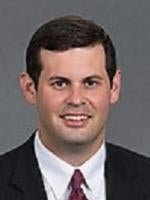In June 2019, the US Supreme Court issued its decision in Parker Drilling Management Services, Ltd. v. Newton, 139 S.Ct. 1881 (2019), holding that state wage-and-hour laws do not apply to a worker on the Outer Continental Shelf (OCS) off the coast of California. The Parker Drilling Court resolved a circuit split between the Ninth Circuit and the Fifth Circuit, adopting the Fifth Circuit’s view that state wage-and-hour laws do not apply to workers on the OCS because the Fair Labor Standards Act (FLSA), a federal law, is controlling on that subject. More broadly, the Court’s decision means that if federal law addresses a particular issue, state law on the same issue will not apply on the OCS.
The facts of the case were as follows. The plaintiff, Brian Newton, was a roustabout and painter for Parker Drilling who worked on drilling platforms in the Santa Barbara Channel off the coast of California. Newton worked 14-day hitches; and during each hitch, he worked 12-hour shifts, followed by 12 hours of “controlled standby time.” Newton was not compensated for controlled standby time, which served as the basis for his lawsuit against Parker Drilling. Indeed, Newton initiated a class action against Parker Drilling in California state court, alleging that California law required Parker Drilling to compensate him for his standby time on the platform. The case thus presented the question of whether California state wage-and-hour laws applied to workers on the OCS.
The Outer Continental Shelf Lands Act, 43 U.S.C. § 1331 et seq. (OCSLA) provides that federal law governs activities on the OCS, but that the laws of the adjacent states apply to the extent “applicable and not inconsistent” with federal law. See 43 U.S.C. § 1333(a)(2)(A). Prior to the Supreme Court’s decision in Parker Drilling, courts struggled to determine whether various state laws were “applicable and not inconsistent with” federal law, which led to inconsistencies in the application of state laws to activities taking place on the OCS. In Parker Drilling, however, the Supreme Court examined the meaning of the “applicable and not inconsistent with” language in OCSLA and, in doing so, clarified the extent to which state law may apply to activities on the OCS.
Reversing the Ninth Circuit, the Supreme Court concluded that “where federal law addresses the relevant issue, state law is not adopted as surrogate federal law on the OCS.” The Ninth Circuit had previously ruled that California state wage-and-hour laws were “applicable” under OCSLA because they concerned the subject matter at issue. The Ninth Circuit further held that the state wage-and-hour laws were “not inconsistent” with federal law because they were not incompatible with federal wage-and-hour laws (i.e., the FLSA, 29 U.S.C. § 201 et seq.); rather, the Ninth Circuit noted that California state wage-and-hour laws merely provided more protections to employees. The Supreme Court, however, reversed the Ninth Circuit’s ruling, adopting the Fifth Circuit’s view that a state law is “applicable and not inconsistent” with federal law only if the state law pertains to an issue that federal law does not address at all. The Supreme Court placed emphasis on the fact that the federal government has exclusive jurisdiction over the OCS, and that federal law is thus the only law that applies on the OCS, with state law applying only in the absence of federal law on the subject. Because the FLSA addressed the issues central to Newton’s claims, the Court held that California state wage-and-hour laws did not apply.
The Supreme Court’s decision in Parker Drilling is significant in the overall landscape of OCSLA. The decision is a victory for companies operating on the OCS because it is now clear that state wage-and-hour laws, which are typically less employer friendly, have no application on the OCS. Under Parker Drilling, OCS employers only need to be concerned about ensuring compliance with the FLSA, which finds uniform application across the country. Moreover, beyond the wage-and-hour issues central to the Parker Drilling case, the Supreme Court’s decision in Parker Drilling should serve to reduce the inconsistencies that companies operating on the OCS once faced in determining whether any number of state or federal laws would govern their activities.



 />i
/>i

